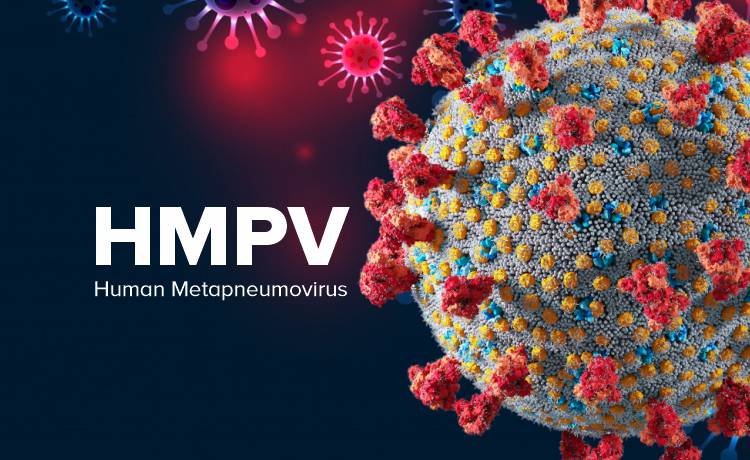
Human Metapneumovirus (hMPV) is a respiratory virus that can cause illnesses ranging from mild cold-like symptoms to severe lower respiratory tract infections like bronchiolitis and pneumonia. Discovered in 2001, it has recently gained attention due to a surge in cases reported in China. While hMPV often results in mild infections, it remains a concern, particularly for vulnerable groups.
hMPV can affect anyone, but certain groups are more susceptible to severe complications:
The symptoms of hMPV can vary depending on the severity of the infection.
Mild Symptoms:
Severe Symptoms (Require Immediate Attention):
In severe cases, hMPV can lead to hospitalization due to complications like bronchiolitis or pneumonia.
hMPV is highly contagious and spreads through:
The virus is most active during late winter and spring, similar to other respiratory viruses.
Although there is no vaccine for hMPV, several preventive measures can help reduce the risk of infection:
1. Practice Proper Hand Hygiene:
2. Avoid Close Contact with Sick Individuals:
3. Disinfect Commonly Touched Surfaces:
4. Boost Immunity:
5. Keep Sick Children Home:
Most cases of hMPV are mild and can be managed at home with rest, hydration, and symptom relief. However, seek immediate medical attention if your child:
Children with underlying conditions such as asthma or compromised immune systems require closer monitoring.
1. Can adults get hMPV?
Yes, adults can also contract hMPV, but symptoms are typically milder and resemble the common cold. However, older adults and immunocompromised individuals may experience more severe symptoms.
2. Is hMPV the same as RSV?
No, hMPV and RSV are different viruses, though they cause similar respiratory illnesses. RSV is more widely recognized, but hMPV is equally significant in respiratory infections, especially in children.
3. How long does an hMPV infection last?
Symptoms usually last 1 to 2 weeks, though severe cases may take longer to resolve.
4. Is there a specific treatment for hMPV?
There is no specific antiviral treatment for hMPV. Management focuses on symptom relief, such as fever-reducing medications, hydration, and rest.
5. Can children get reinfected with hMPV?
Yes, reinfection is possible as immunity from prior infections is not long-lasting. However, subsequent infections are usually milder.
6. Which children are at higher risk for severe hMPV?
At Citizens Specialty Hospital, we provide top-tier care for respiratory illnesses like hMPV. Our dedicated team of pediatricians and pediatric pulmonologists ensures early diagnosis, effective treatment, and comprehensive care. Prevention, timely intervention, and expert guidance are at the core of our approach to safeguarding your child’s health.
Dr M. Suneetha is one of the top medical oncologists in Gurugram. He has a vast experience of more than 30 years in the field of Medical oncology. He his specialised in treating leukemia,lymphoma, hematological oncology and other complex oncology cases . He is also specialised in Bone Marrow Transplantation (BMT) treatment. He is working as a Senior Consultant, HOD, Medical Oncologist in American Oncology Institute, Gurugram.